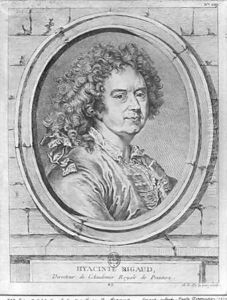Ange Laurent de Lalive de Jully Paintings
Ange Laurent de Lalive de Jully was an important French patron of the arts, collector, and amateur artist born in 1725 in Paris, France. He was not an artist in the traditional sense, as he did not produce a significant body of work that would be studied for its artistic merit; rather, his influence on the arts was as a supporter and promoter. De Lalive de Jully came from an affluent family which allowed him to become a notable figure in the cultural and social circles of his time. His contributions to the arts were significant during the Enlightenment period in France.
De Lalive de Jully was deeply involved in the intellectual and artistic life of Paris. He was known to host salons that were frequented by prominent philosophers, writers, and artists of the day. Such gatherings were hotbeds for the exchange of ideas and played a critical role in the dissemination of Enlightenment thought. His passion for the arts led him to amass an impressive collection of paintings, sculptures, and decorative arts, some of which were commissioned works by prominent artists of his time.
He was closely associated with the Encyclopédie project, a massive undertaking to compile knowledge that was edited by Denis Diderot and Jean le Rond d'Alembert. De Lalive de Jully contributed not only through patronage but also by inspiring articles related to the fine arts. His interest in the Encyclopédie and its ideals reflects his broader engagement with the philosophies that were shaping contemporary culture and politics.
Ange Laurent de Lalive de Jully died in 1779. Although he did not leave behind a legacy of artistic works, his impact on the art world was marked by his role as a patron and a collector. His support helped cultivate an environment that allowed the arts to flourish during a pivotal era in French history. Today, art historians recognize him as a significant figure in the cultural landscape of 18th century France, an exemplar of how patronage and intellectual engagement can shape and support the arts.
